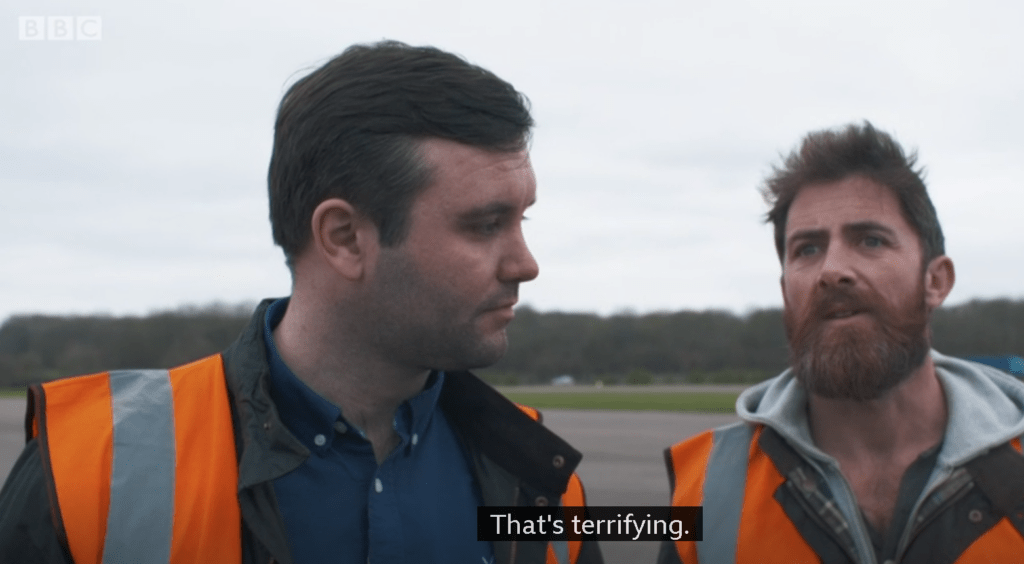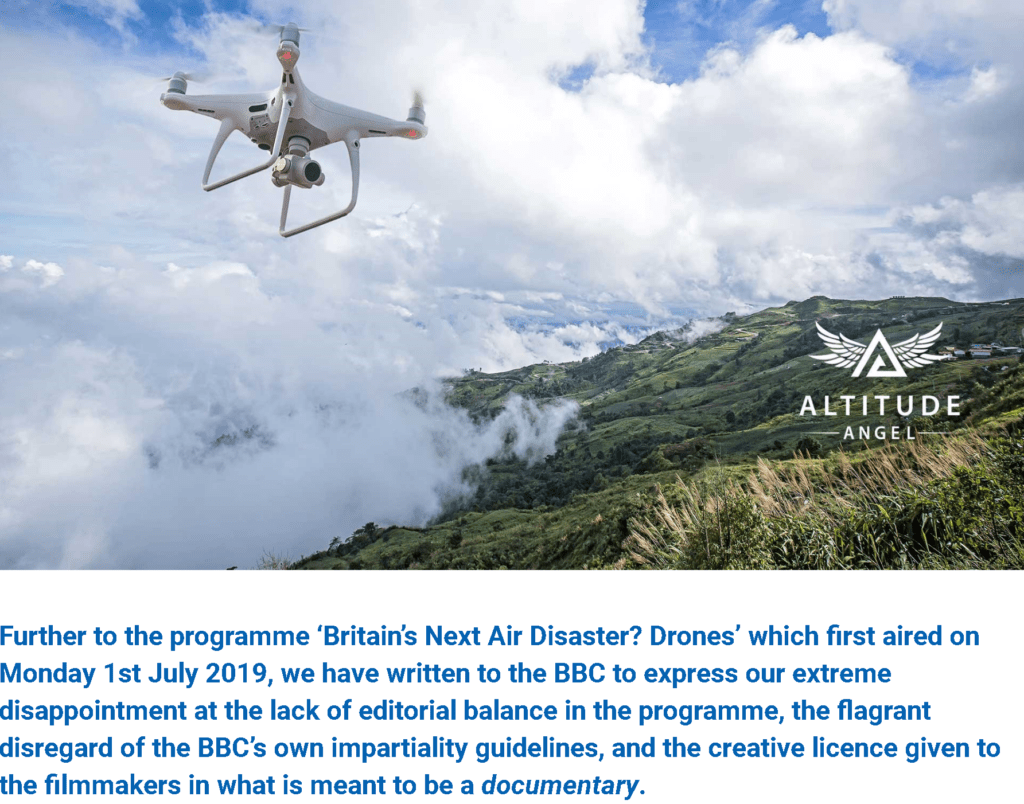Altitude Angel is one of the UK drone industry’s success stories. The airspace technology company has led the way in European UTM tests, in 2018 gained FAA approval to provide Low Altitude Authorization and Notification Capability (LAANC) services in the US, and earlier this year partnered with DJI to provide GEO 2.0 and airspace data across Europe.
With stakes right across the emerging industry, Altitude Angel stands to lose out as much as any if the wave of recent negative publicity results in concrete anti-drone regulations.
With that in mind, it’s no surprise that the company has gone public with criticism of a BBC documentary that aired earlier this month. You can read our report on the documentary here for more detail and DJI’s official public response.
The complaint from Altitude Angel, which goes into some specifics of the BBC program, including yet another apparently flawed impact test and the general tone of the documentary, can be read in full here.

Altitude Angel adds to BBC criticism
Altitude Angel also published a summary on their blog (below). The central points are that the BBC’s ‘Britain’s Next Air Disaster? Drones’ documentary was not, by definition, a documentary at all; and that it was clearly made with a pre-existing anti-drone narrative in mind.
The full summary is below…
Further to the programme ‘Britain’s Next Air Disaster? Drones’ which first aired on Monday 1st July 2019, we have written to the BBC to express our extreme disappointment at the lack of editorial balance in the programme, the flagrant disregard of the BBC’s own impartiality guidelines, and the creative licence given to the filmmakers in what is meant to be a documentary.
We believe this programme failed to meet the BBC’s own editorial guidelines and failed to meet the standards expected of the BBC by viewers of the Horizonprogramme. From the start, it clearly seeks to position drone technology as a threat. To clarify, any technology has the potential to be a threat. To vilify this one, which has delivered vaccines to sick children in Vanuatu (work supported by UNICEF), helped the police to find vulnerable missing persons, and might one day play an extremely significant part in helping to transform lives and revolutionise businesses, is anything but impartial.
In general, and at best, this programme paid lip-service to both the safety record of drone use and drone pilots, as well as the efforts drone manufacturers, drone pilots, airports and air navigation service providers are going to in order to keep our skies safe while managing the introduction of drones.
Further, this programme is damaging to the UK’s economic interests because it affects viewers’ perception of drone technology, which in turn could very well affect how quickly drone technology will be accepted into everyday life. PwC estimate the UK drone industry has the potential to increase to £42 billion by 2030. In the current political climate, the UK’s economy needs the investments (and cost savings offered by drones) of drone companies.
Much of the programme presented anecdotal accounts, incidents and ‘reported near-misses’ as fact or evidence drones had come close to causing an incident but the programme’s researchers make liberal use of UK Airprox Board (UKAB) reports about drone sightings to back up the ‘dangerous drones’ undertone, and neglect to mention any pilot can file a report, or that a recent Freedom of Information Request revealed that 80% of airprox reports as misclassified by the UKAB, according to Airprox Reality Check.
As a company, we generally do not involve ourselves in the politics of drones, but this serious failing of the BBC’s obligations (as we view them, and have set out below) has the potential to bias important regulatory work now being undertaken not just here, in the United Kingdom, but across the world. In addition, we feel it is important to add our voice in representing the 150,000 drone pilots in the UK who we know are conscientious and pioneering in their early adoption, a good percentage of whom feel badly let down by this piece, too. It is for these reasons we felt compelled to write to you, and why we will be filing official complaints through both Ofcom and the BBC’s official channels.
Malek Murison is a freelance writer and editor with a passion for tech trends and innovation. He handles product reviews, major releases and keeps an eye on the enthusiast market for DroneLife.
Email Malek
Twitter:@malekmurison
Subscribe to DroneLife here.
